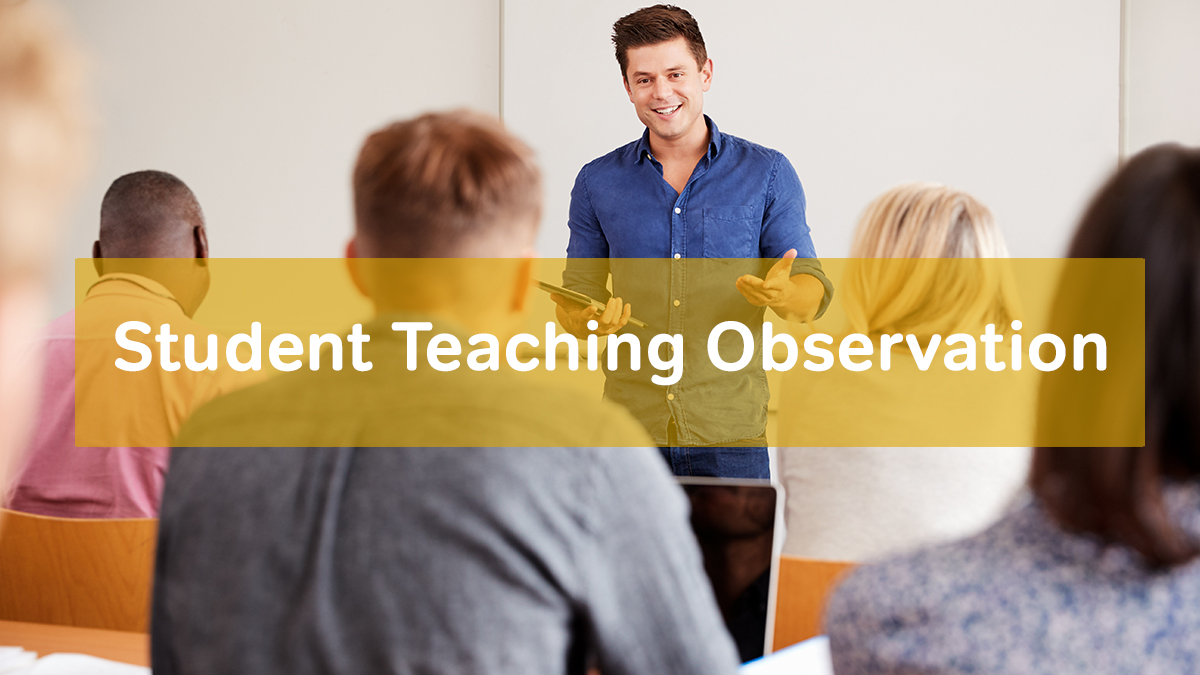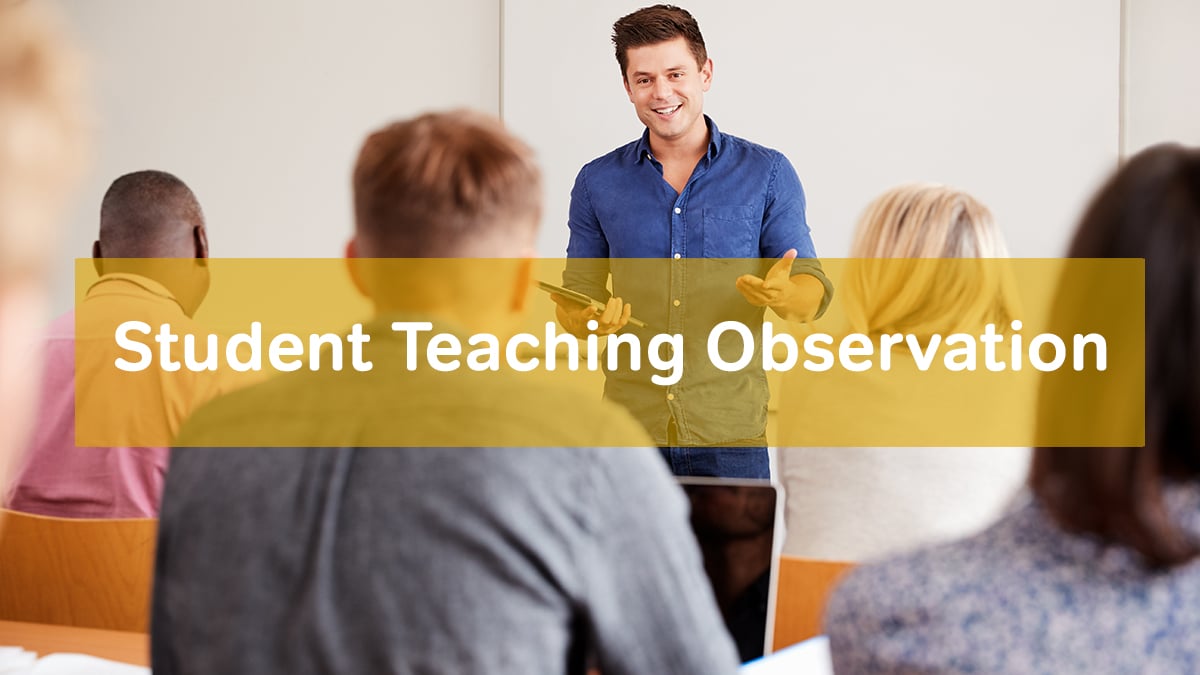
Student teaching observation time can be nerve-wracking! But it doesn’t have to be. Take a deep breath, take time to prepare, and you’ll do fine.

Know What Your Observer Is Looking For
Your observer has most likely provided a rubric or checklist to you ahead of time. Make sure to go through that list and check all the boxes. For instance, the observer probably wants a copy of your lesson plan and any student handouts, so be sure that you have created a really good lesson plan. They will want to see evidence of a clear objective in your lesson (which may need to be written on the board). You may be required to measure your objective (i.e., did students learn what you wanted them to?).
In general, your student teaching observation is just looking for evidence of good teaching practices. Most of them you probably do already! Use the checklist or rubric to make sure you don’t let anything slip through the cracks. If you aren’t given a rubric or checklist, it’s OK to ask for one ahead of time.
Prepare Carefully and Take Extra Time to Practice
Make sure the lesson you’re teaching for your student teaching observation is extra-polished. It may not go perfectly–and that’s OK! But make sure you’ve taken time to think through exactly what students will be doing at every point and what you will be doing at every point. How will you have them transition from one activity to another? Your supervising teacher is a great resource here. Walk through your lesson with her. You should be able to explain exactly what’s happening at each point. You should also be able to explain exactly what the goal of every part of your lesson is.
It may feel silly, but take time to actually rehearse what you will say during your lesson out loud. Try recruiting your roommates, family, or significant other for a practice lesson. They will probably have fun pretending to be your students! Then you will have a trial run under your belt before your student teaching observation.
Relax!
One of the lessons I learned as a student teacher is the importance of being relaxed. Your observer knows that you are still learning. They don’t expect you to be at the same skill-level as a 20-year educator. During your student teaching observation, they are mostly looking to make sure you are prepared and responsive to your students. If you are tied up in nervous knots, you won’t be able to deliver your lesson at your best. If you’re nervous, you’ll be more easily flustered, too. So invest plenty of time in preparation, but then try to relax and go with the flow of the lesson. You’ll be more able to engage your students and hold their attention. If you’re enthusiastic, your students are more likely to be enthusiastic, too.
The student teaching observation is important, but remember, you teach every day! This isn’t so different; you just want to present your best self. Prepare and make sure you are ready, then turn your focus to your students instead of your nerves. You’ve got this. 🙂


